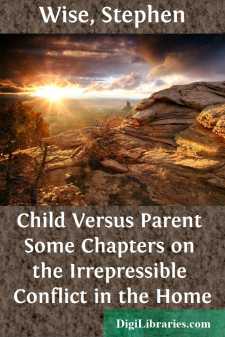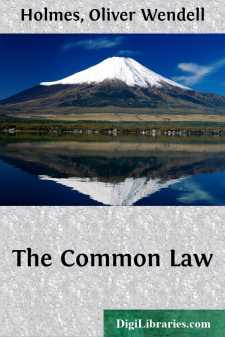Categories
- Antiques & Collectibles 13
- Architecture 36
- Art 48
- Bibles 22
- Biography & Autobiography 813
- Body, Mind & Spirit 142
- Business & Economics 28
- Children's Books 15
- Children's Fiction 12
- Computers 4
- Cooking 94
- Crafts & Hobbies 4
- Drama 346
- Education 46
- Family & Relationships 57
- Fiction 11829
- Games 19
- Gardening 17
- Health & Fitness 34
- History 1377
- House & Home 1
- Humor 147
- Juvenile Fiction 1873
- Juvenile Nonfiction 202
- Language Arts & Disciplines 88
- Law 16
- Literary Collections 686
- Literary Criticism 179
- Mathematics 13
- Medical 41
- Music 40
- Nature 179
- Non-Classifiable 1768
- Performing Arts 7
- Periodicals 1453
- Philosophy 64
- Photography 2
- Poetry 896
- Political Science 203
- Psychology 42
- Reference 154
- Religion 513
- Science 126
- Self-Help 84
- Social Science 81
- Sports & Recreation 34
- Study Aids 3
- Technology & Engineering 59
- Transportation 23
- Travel 463
- True Crime 29
Child Versus Parent Some Chapters on the Irrepressible Conflict in the Home
by: Stephen Wise
Description:
Excerpt
CHAPTER I
FACING THE PROBLEM
One way of averting what I have called the irrepressible conflict is to insist that, in view of the fundamental change of attitude toward the whole problem, the family is doomed. Even if the family were doomed, some time would elapse before its doom would utterly have overtaken the home. In truth, the family is not doomed quite yet, though certain views with respect to the family are,—and long ought to have been,—extinct. Canon Barnett was nearer the truth when he declared: "Family life, it may be said, is not 'going out' any more than nationalities are going out; both are 'going on' to a higher level." To urge that the problem of parental-filial contact need not longer be considered, seeing that the family is on the verge of dissolution, is almost as simple as the proposal of the seven-year-old colored boy in the children's court, in answer to the kindly inquiry of the Judge: "You have heard what your parents have to say about you. Now, what can you say for yourself?" "Mistah Judge, I'se only got dis here to say: I'd be all right if I jes had another set of parents."
For the problem persists and is bound to persist as long as the relationships of the family-home obtain. The social changes which have so markedly affected marriage have no more elided marriage than the vast changes which have come over the home portend its dissolution. It is as true as it ever was that the private home is the public hope. A nation is what its homes are. With these it rises and falls, and it can rise no higher than the level of its home-life. Marriage, said Goethe, is the origin and summit of civilization; and Saleeby offers the wise amendment: "It would be more accurate to say 'the family' rather than marriage." Assuming that the family which is the cellular unit of civilization will, however modified, survive modern conditions, the question to be considered is what burdens can the home be made to assume which properly rest upon it, if it is to remain worth while as well as be saved?
Nothing can be more important than to seek to bring to the home some of the responsibilities with which other agencies such as school and church are today unfitly burdened. False is the charge that school and church fail to co-operate with the home. Truer is the suggestion that church and school have vainly undertaken to do that which the home must largely do. The teacher in church and school may supplement the effort of the parent but cannot and may not be asked to perform the work of parents. The school is overburdened to distraction, the church tinkers at tasks which in the nature of things must fall to parents or be left undone. And the school is attempting to become an agency for the universal relief of the home, which cannot be freed of its particular responsibilities even by the best-intentioned school or church.
Another quite obvious thesis is that conflicts arise between parents and children not during the time of the latter's infancy or early childhood but in the days of adolescence and early adulthood....












